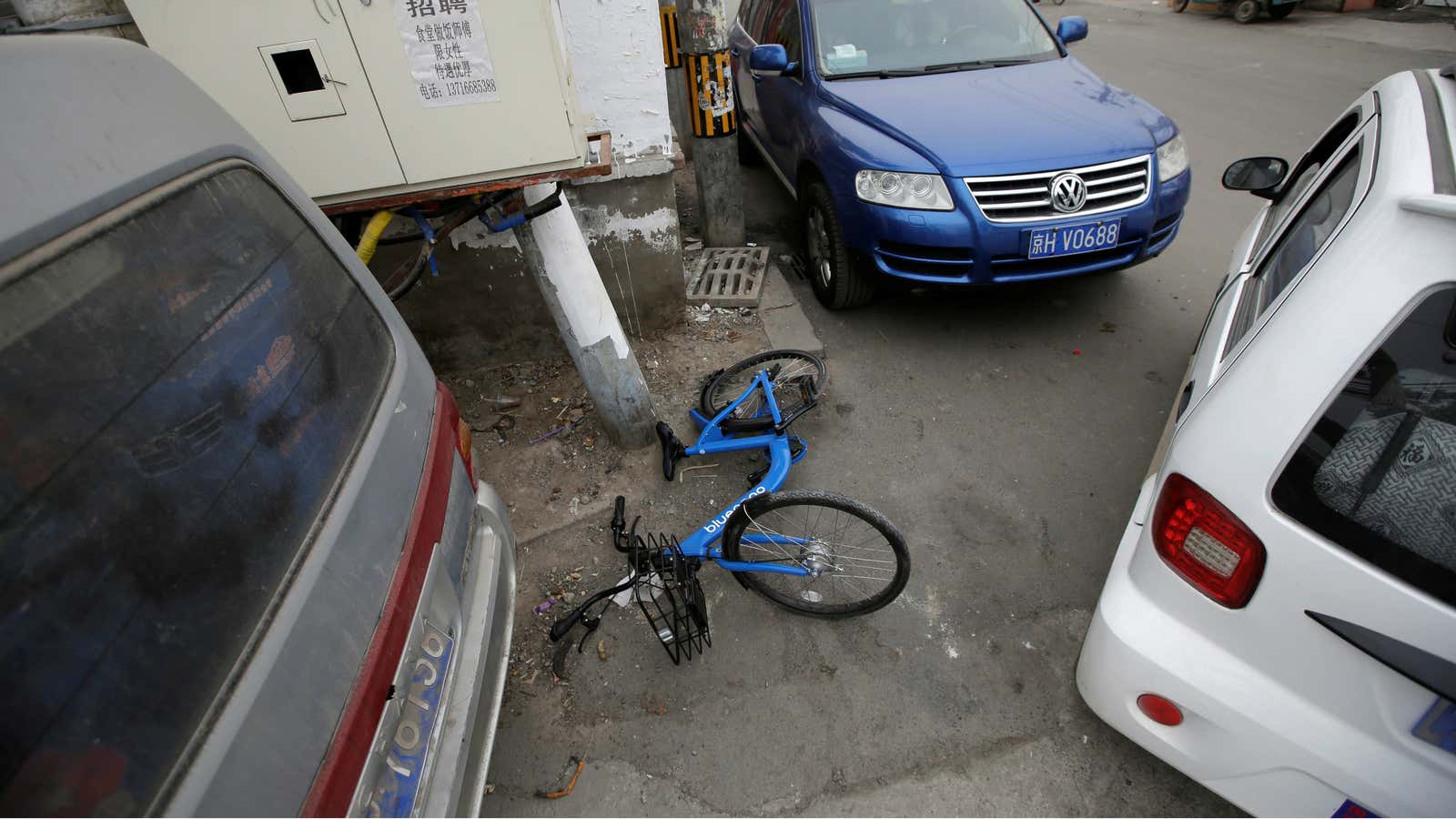One year ago, China’s bike-sharing sector was riding high. Now it’s heading downhill.
Chinese media outlets reported this week that Bluegogo, a major competitor in a crowded industry, is on its last legs. Its looming death, coupled with other developments in the industry, suggest that bike-sharing in China will soon be dominated by a single company.
Bluegogo was founded in 2016, and has raised a total of 600 million yuan (about $90 million) under CEO Li Gang, according to Crunchbase. While that’s well behind the roughly $1 billion in funding that rivals Mobike and Ofo have each received, the company is considered the number three bike-sharing company in China, with 700,000 bikes (link in Chinese) placed across China in the first half of this year.
The company now appears to be heading toward collapse. According to Chinese media outlet The Paper (link in Chinese), Bluegogo’s Beijing headquarters have been vacated almost completely. Its staff count has also slimmed considerably. One employee from the company’s Shenzhen office said the local team had been reduced from 40 people to 10.
Meanwhile, a bike supplier for Bluegogo told the Global Times that the company owes it more than 10 million yuan ($1.5 million) in unpaid debts.
Similar to many other Chinese bike-sharing companies, Bluegogo requires users to pay a deposit of 100 yuan (about $14) in order to use their bikes, which they charge 0.5 yuan ($0.08) per half hour to ride. The deposits are supposed to be fully refundable, yet searches for Bluegogo on Weibo shows countless commenters (link in Chinese, registration required) complaining that they have not received their deposits when they ask for them back. Others have complained that they cannot activate the bikes for riding.
When asked about the situation, one current Bluegogo employee in Beijing, who requested to remain anonymous, said the company is still operating. But he added that remaining employees “are incredibly discouraged. Li Gang has never communicated information with us directly.” When asked about the unreturned deposits, he said he suspected it was because of funding pressures faced by the company. Official representatives for Bluegogo could not be reached.
Bluegogo’s struggles follow the demise of several smaller Chinese bike-sharing companies. Within the past six months, at least three companies—Wukong, 3vBike, and Ding Ding—have shuttered.
In October, Bloomberg reported that Ofo, backed by China’s e-commerce giant Alibaba, and Didi, backed by social media giant Tencent have entered talks to form a possible merger. At a conference held by China’s Fudan University in Shanghai, Ofo investor Allen Zhu told the audience that the two companies together capture 95% of the market, and would only be profitable if they join together (link in Chinese). There are dozens of other bike-sharing companies with vehicles covering the streets of Chinese cities, and many of them are smaller than Bluegogo. If the distant third player is on its knees, many more will likely follow suit.
